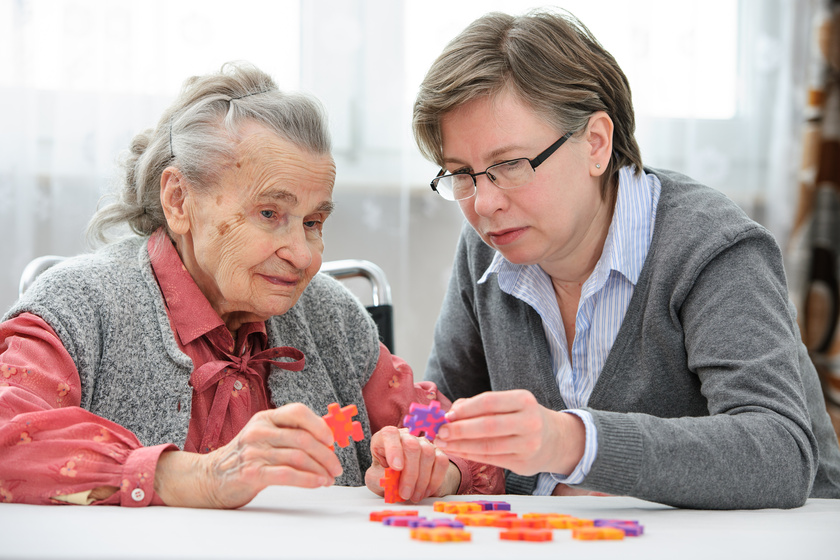One of the essential parts of dementia care is keeping your loved one engaged and stimulated. If you need help with this, learning about different ways to promote your loved one’s senses is essential. In this article, we’ll explore the importance of sensory stimulation activities for dementia in memory care and why these activities benefit people in their golden years with dementia or Alzheimer’s disease. By the end of this post, you’ll have some great ideas on how to make each day a little more engaging!
Decrease Aggressive Behaviors
You can also utilize sensory stimulation activities to help decrease aggression. This means that when your loved one is struggling with a particular behavior, you can use a specific activity to help them focus their attention on something else and distract them from the source of agitation. For example, if they are agitated because they have lost their keys and this is making them anxious, you may choose an activity like playing with plastic bottles or marbles in order to distract them from the situation at hand while they search for their keys.
Improve Cognitive Functioning
Stimulating the senses is an excellent way to increase cognitive function. Many people with dementia have difficulty processing new information and remembering things, so it’s important to provide them with multiple sensory stimulation activities daily. The sense of touch is a primary sense used by humans and animals alike. When dealing with dementia patients, tactile stimulation can be used as a method of Communication as well as an activity that stimulates the brain and improves cognitive functioning. This intervention has been shown to reduce agitation, confusion, depression, and wandering behaviors in individuals with Alzheimer’s disease (AD).
Dementia patients who experience frequent visual hallucinations can benefit from engaging in activities that stimulate their vision, such as crafts like crossword puzzles or coloring books which require concentration on one task at a time without distractions. This allows them to focus their attention away from hallucinations while engaging their visual senses at the same time.
Improve Behavioral Problems And Relaxation
Sensory stimulation activities help your loved one calm down, relax, and reduce stress and anxiety. Certain types of dementia-related behavior will be reduced when your family member is engaged in sensory stimulation activities such as petting an animal or watching television. This engagement may also help you build stronger bonds with each other!
Assisting With Verbal Communication
Verbal Communication is such an integral part of our lives that it can be easy to take it for granted. We talk to our friends, family members, and coworkers; we talk with strangers on the street; we speak to ourselves when we’re alone in the shower. However, verbal Communication isn’t just about speaking out loud—it’s also essential for listening and understanding what others are saying to us. It allows us to share our thoughts and feelings, which is an integral part of socialization and human connection.
Verbal Communication is also something that many people take for granted until they no longer have access to it themselves due to memory loss associated with dementia or another mental condition such as Alzheimer’s disease. However, providing dementia residents with opportunities for verbal stimulation will help them maintain their ability—and desire—to communicate verbally even when their ability may begin to deteriorate without intervention from care providers like you!
Conclusion
As you can see, sensory stimulation activities are a great way to help improve the lives of those with dementia. They provide moments of joy for the individual and give caregivers an opportunity to engage with their loved ones in meaningful ways. The best part is that these activities don’t need to be expensive or complicated—they must be fun!







